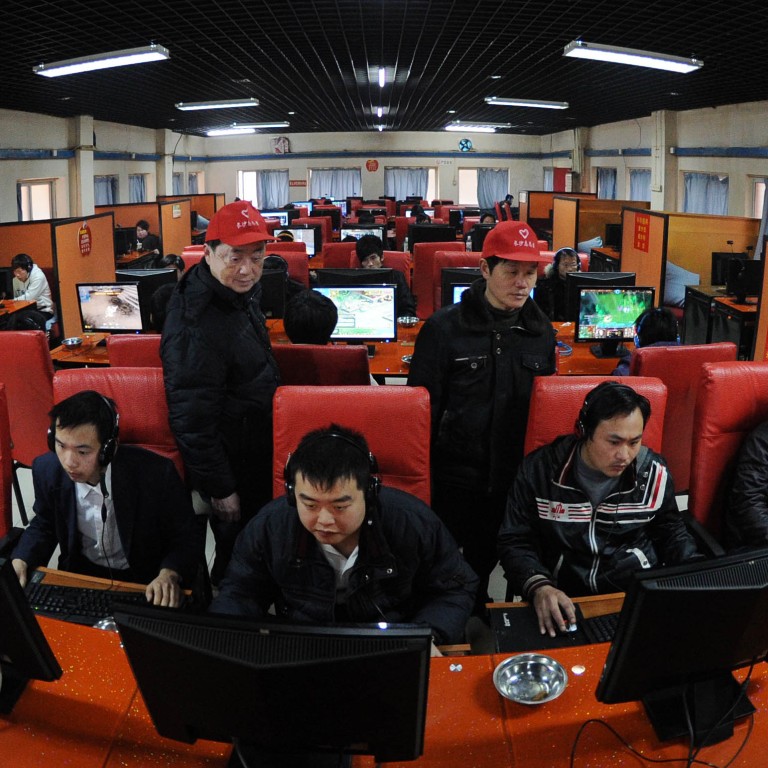
China shuts down 31 websites temporarily as crackdown on 'rumour mongers' continues
Sources say new moves have targeted only sites containing 'political rumours', while unnamed official blames people for spreading 'maliciously fabricated and circulated rumours'
A total of 31 websites have been temporarily shut down by the mainland’s internet regulators in the latest crackdown against “rumour mongers”.
Xinhuanet.com, the state-run website of Xinhua, reported that the affected sites include an online game forum and two online bulletin boards – known as BBS – one based in Guangdong and the other in Hebei province.
Also shut down was the Beijing-based website for zhiqing or “sent-down youth” generations – the Cultural Revolution campaign that saw millions of young city dwellers sent to the hinterlands to be “re-educated by the peasants”.
The services of a Beijing-based mobile phone app for aggregating information – mostly news and forum posts – have been suspended, too, for seven days as a punishment, xinhaunet.com said.
[Some people] maliciously fabricated and circulated rumours, and these claims are seriously inaccurate ...
This is not the first time internet regulators have targeted websites, but until now police have detained dozens for individuals and shut down websites that have circulated pornographic content.
Xinhuanet.com’s report quoted an unnamed official, who said some people had “maliciously fabricated and circulated rumours, and these claims are seriously inaccurate”.
The websites that were closed had “caused bad influence because of their improper management … and will be condemned”, xinhuanet.com reported.
Although the official did not say what rumours had been circulated, two sources familiar with the case said that the crackdown had targeted only “political rumours”.
Last August the Ministry of Public Security announced the special campaign against online rumours. The following month legislation came into force, which means internet “rumour mongers” can be jailed for writing defamatory messages.
[The internet regulators] should go after those overseas media, rather than my website
Jiang Chengwu, the owner of Beijing Zhiqing Web, blamed the closure of his website on one post from a user, which had referred to retired party leader Jia Qinglin.
Since last week the mainland’s internet has been full of rumours that Jia has been detained in Hohhot, in Inner Mongolia over allegations of graft.
Jia was once chairman of the advisory body, the Chinese People’s Political Consultative Conference, and is a former member of the powerful Politburo Standing Committee.
He made a rare public appearance at the scenic spot of Changshou Mountain, in Hebei province, on Wednesday in an apparent attempt to dismiss the rumours of his detention.
Jiang said that censors had quickly removed the post on his website, and he had been left frustrated when he received the closure notice two days ago.
The owner of another closed website, Gonghe Web, or Republic Web, said overseas media had provided all the news on his website – including a homepage story about the inquiry into the son of Guo Boxiong, the former vice-chairman of the Central Military Commission.
“[The internet regulators] should go after those overseas media, rather than my website,” the founder said.
Neither of the two website owners said they knew when their websites would be allowed to resume normal service.
Chinese internet users can now face up to three years in prison for writing defamatory messages that are re-posted 500 times or more
China’s internet is under intense censorship because of government fears that the web poses a potential threat to the Communist Party’s dominance.
Only yesterday, President Xi Jinping, gave a keynote speech to the Brazilian congress, during his week-long visit to Latin America, in which he called for stricter management of the internet, Xinhua reported.
Xi believes the web will pose increasing challenges to state sovereignty, national security and development.
Chinese microblogs have become drivers of public opinion in recent years, with commenters drawing attention to official corruption, pollution and other issues.
However, September’s legislation means Chinese internet users can now face up to three years in prison for writing defamatory messages that are re-posted 500 times or more; web users may also be jailed if offending posts are viewed more than 5,000 times.
In January the China Internet Information Centre’s half-yearly report showed the first fall in the number of users of the mainland’s Sina Weibo social media website since the new legislation – down 9 per cent to 281 million.
In April, internet blogger Qin Zhihui was the first person to be sent to prison under the new rules. He was jailed for three years after being found guilty of “slander” and “picking quarrels and provoking troubles”.
In a more recent case, a man in Shantou, Guangdong province, was placed in detention for 10 days for making up rumours about a murder case.
China has the world’s largest number of internet users at more than 630 million, official figures report; more than 80 per cent of them have access to the internet using their mobile phones.
The nation has the world’s most sophisticated online censorship system, known outside the country as the Great Firewall.
It blocks many social media websites, such as Twitter, Facebook, YouTube and others, along with many sites hosted in Taiwan and those of rights groups and some foreign media agencies.
Although social media has become a platform for users to voice complaints and criticism about the government, the authorities force domestic internet companies to delete user-posted content they consider too politically sensitive.
